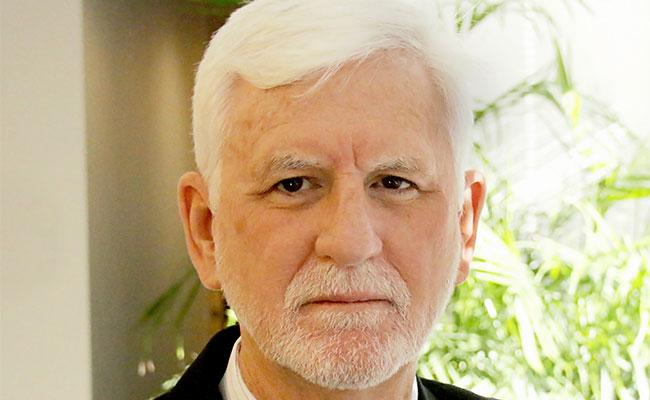Tetra Tech's Tim Michael Discusses Quality Assurance Oversight for International Development Projects
Supporting our international development clients to deliver safe, sustainable, and compliant infrastructure projects

With more than 35 years of experience in project management, engineering, and infrastructure development, Tim Michael is a director in Tetra Tech’s international infrastructure sector. Tim has led projects through all phases of feasibility, facility, and infrastructure development for the U.S. Agency for International Development (USAID) in South Sudan, Ethiopia, and Afghanistan and for the Millennium Challenge Corporation in Tunisia.
As the Chief of Party for the USAID Feeder and Trunk Roads Program in South Sudan and the USAID Engineering Services and Construction Oversight Program in Ethiopia, Tim has implemented critical infrastructure solutions and provided high-quality assurance and oversight to monitor the success and sustainability of projects. Tim is an expert in quality assurance oversight and accommodating the needs of both clients and end customers.
Why is quality assurance oversight more important in an international development context?Quality assurance oversight helps the client manage safety, quality, schedule, and cost during the riskiest period in the entire project life cycle—construction. In developed countries, contractors are highly experienced with tried-and-true systems in place. In developing countries, contractors lack the same foundation and typically work to a different standard. They may compromise on materials based on what is available or use outdated processes because they have not been exposed to international standards or cost-effective techniques. Our job is to introduce innovative approaches to local contractors that support using the best materials possible while substantially complying with the specifications and design standards. By emphasizing construction oversight, our clients proactively improve the quality of work and reduce risks by mitigating issues that can undermine the overall structure, usability, and safety of a building.
In Ethiopia, we used a hierarchy of resident and regional engineers to monitor remote construction sites that provided our client with visibility on project progress, improved contractors’ accountability, and enabled sustainability. For example, when contractors are encouraged to install pre-engineered steel concrete forms, they improve their approach and deliver a better product more efficiently. Better yet, it is less expensive for the contractors, incentivizing them to adopt the improved approach on their next project. In total, Tetra Tech oversaw the successful completion of 32 health centers for the USAID Engineering Services and Construction Oversight Project, and continues overseeing projects across Ethiopia and Djbouti through the USAID Engineering Services and Construction Oversight-2 project, where we have already advanced our systems to leverage real-time mobile data collection and reporting.
How does quality assurance oversight experience add value to a project?When our engineers with quality assurance experience contribute to design development, we can apply lessons learned sooner. We provide an informed perspective on the most sustainable approach in a given region and knowledge gained from the end user or community in a way that is impossible when working solely from the United States. Then, we support and validate the client’s procurement approach to help make documents context appropriate. Every country has its own approach, and we tailor standard bid document packages to make sure the process is successful and follows best and innovative practices. Once construction begins, our clients depend on us to head off problems, catch mistakes early, and explain the consequences of contractors’ actions when necessary.
Without us, contractors often overlook details in drawings and specifications because they are less familiar with modern practices. Contractors cut costs on materials because they are unaware of how higher quality materials improve the longevity of a building or how international design standards improve safety. We maintain our presence through construction closeout and the warranty period to ensure everything continues to work properly. Even with a high level of oversight, warranty work is extremely important in a developing country because the contractor is still learning and small issues with materials and workmanship are much more likely to occur. For example, do window fixtures stay attached and do doors continue to latch well?
To expect perfection from a contractor in a developing country the first time around is unreasonable and will delay implementation, so the warranty period allows a final chance to correct the marginal issues that occur. This is the final key step in delivering a highly sustainable project. Our clients expect quality that contractors have never been accountable for before. Our mentorship helps improve the contractors’ management capacity and quality standards; after working with a contractor for just a year, the difference is striking.
How have you integrated capacity building and gender into quality assurance oversight activities?We support the professional growth of newly educated women engineers to promote broad-based, inclusive economic growth. Getting this field experience through an international architecture-engineering firm, such as Tetra Tech, can empower women to serve and lead the engineering sector. Most importantly, gender integration in developing countries provides opportunities where previously there were none. Field experience is good for any engineer, but, after providing women opportunities for construction experience, they are even better equipped to excel past their colleagues when they return to an office engineering position. Furthermore, women on our teams have proven to have excellent communication skills, which improve our relationships with contractors and strengthen project documentation.
We mentor local contractors and project staff, building their capacity to meet the international engineering standards needed for construction oversight. We introduce them to innovative techniques, like electronic reporting, and expose them to lessons learned that are difficult for young engineers to find in developing countries. This experience improves their productivity, supports professional advancement, and provides the tools needed to deliver a highly sustainable project and become more competitive.

